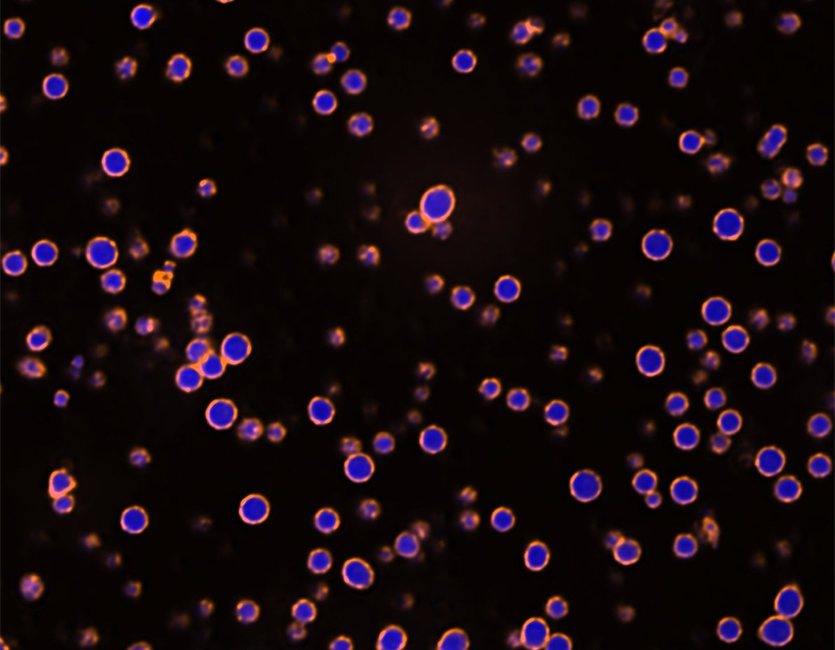Tag: Cancer
-

Identifying Biomarkers to Guide Prostate Cancer Treatment
Biological markers may help predict which patients will benefit most from specific therapies to treat prostate cancer, according to a study published in the journal Cell.
-

Novel Approach May Improve Early Cancer Detection
A novel approach to detect RNA modification patterns in patient blood samples may be a promising tool for the early detection of colon cancer, as detailed in a recent study published in Nature Biotechnology.
-

Investigating How Tumor-Immune Cell Clusters Drive Cancer Spread
In a pair of studies, investigators from the lab of Huiping Liu, MD, PhD, have uncovered how specific cellular interactions in the bloodstream may be fueling the spread of breast cancer.
-

Nation’s First MIRAVA Polyscope Comes to Center for Advanced Microscopy
Feinberg investigators now have access to one of the most advanced super-resolution imaging systems in the world, thanks to the installation of the MIRAVA Polyscope at the Center for Advanced Microscopy.
-

Feinberg Scientists Reveal Hidden Dynamics of the Cell’s Smallest Structures
Scientists at Feinberg are reshaping scientific understanding of the cell’s tiniest components—structures once thought to be static, now revealed to be dynamic engines of cellular life.
-

Molecular Mechanisms Support Long-term Immunity
Scientists in the laboratory of Weiguo Cui, PhD, have identified novel molecular mechanisms that help specialized T-cells maintain long-term immunity in response to chronic infection and cancer, according to recent findings published in Nature Immunology.
-

Study Reveals Surprising Link Between HIV and Alzheimer’s
A new Northwestern Medicine study has uncovered a surprising molecular link between HIV-1 and a protein fragment associated with Alzheimer’s disease, according to findings published in the Proceedings of the National Academy of Sciences.
-

Understanding Cellular Differences that Impact Lymphoma Development
A Northwestern Medicine study has uncovered new insights that may aid in understanding and potentially treating one of the most common and aggressive forms of non-Hodgkin lymphoma, according to findings published in Science Advances.
-

New Strategy Doubles Chemo Effectiveness in Treatment-Resistant Cancer
Northwestern scientists have discovered that the organization of a cell’s genetic material dictates cancer’s ability to adapt, according to a recent study published in the Proceedings of the National Academy of Sciences.
-

Cell Feature Implicated in Cancer Forms Differently than Previously Thought
A team lead by Northwestern scientists has found that paraspeckles, found in the nucleus of many cells, form differently than previously thought, which may aid in the design of future cancer drugs.





